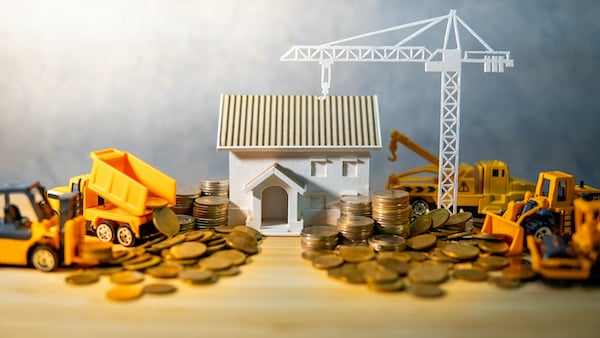10 Tips for Buying Commercial Real Estate as a Small Business
This is my second article of a 3-part series primarily intended for small businesses and operating companies. You can find the first article concerned with leasing vs. buying a commercial property here.
Background
I’ve found that most small businesses become landlords by accident. As a founder, you start a business and lease some space. But you quickly realize your space no longer fits your business’s needs, so you go out and buy a building. Your process lacks deliberateness, but your company’s growth drives the need for space expansion and quickly.
What if I told you it doesn’t need to be this way. That instead, the process should be intentional because finding the right space is a lot more than just finding a building big enough to house your operations. The physical workspace is an extension of a business’s culture and its values. And a company’s workplace strategy, of which physical space is a significant component, ultimately drives its productivity.
10 Tips for Buying Commercial Real Estate
Even if you don’t have experience buying a commercial property, that doesn’t mean you can’t arm yourself with some knowledge to help you through the process. Here are 10 tips for buying commercial real estate that every small business should consider:
1. Conduct a lease vs. buy analysis before making any decisions: The 1st article in my small business series addresses this in detail, so I won't dive into the discussion at great length here. But a lease vs. buy analysis should be the first step any small business takes before buying a building. It should address the following questions:
- After-tax cash flows: Are the after-tax cash outflows of ownership less than leasing? What about salvage/resale value? In addition to tangible cash flows like maintenance and tax expense, non-cash items like depreciation and interest expense should also be considered.
- Net present value: After determining all relevant cash flows, what is the long-term value of your decision to buy or lease property in "today's dollars?" Net present value accounts for the time value of money and offers a simple metric to compare leasing vs. buying.
- Opportunity cost: What is the forgone value by choosing one decision over another? Equity tied up in building ownership can’t be reinvested elsewhere to drive growth.
2. Develop your business’s future growth prospects: I mentioned that most small companies stumble into their real estate by chance. And that becomes an issue if the space no longer supports the company's operations. A business should conduct a comprehensive growth analysis before purchasing a property to systematize the acquisition process.
Sales growth forecasts are a typical metric businesses use to aid their decision making. By taking the analysis one step further and forecasting the growth in variable accounts driven by sales (headcount, workstations/offices, parking, meeting space, etc.), a business can better project its space requirements.
A detailed program analysis can help forecast 5-, 10- and 20-year space needs, so businesses don't make short-sighted real estate decisions.
3. Find the right location: Depending on your business model, location is more than a question of being close to your customer base. Metro areas have served as employment hubs because that’s where the job talent has historically flocked - and real estate has drafted off this in-migration.
If you’re concerned with talent acquisition, your business’s site should be collocated near the future talent you wish to hire. If you’re more concerned with land or site acquisition costs, real estate in a secondary market may be a better option.
4. Ask the right questions regarding your motivation to purchase: As an asset, the value of real estate is distinct from the value of your operations; so, the decision to buy a building shouldn’t be contingent on adding value to your business. To assess your motivation for buying, you need to ask a couple of qualifying questions:
- Is the property strictly for my business to operate?
- Do I want to buy a multitenant building and become a landlord as well?
- Would I like to hold the property to build personal equity?
Depending on the answer, your property search may be slightly more nuanced. The durability of the rental market is an important consideration if you’re a landlord. Conversely, if flexibility is a concern for your business, your real estate search will yield different results.
There may be no right answer, but your underlying motivation will inform the real estate search parameters.
5. Determine the ideal ownership structure: Depending on how real property is held, an owner may be subject to undue liability and heavy taxation.
Real estate held in a C corporation is subject to double taxation at both the corporate and individual levels when a distribution is made. Whereas real estate held in an individual’s name doesn’t provide the benefit of the corporate veil.
Generally, an LLC is the structure of choice for most real estate owners. It affords legal protection while also minimizing tax exposure - in addition to keeping the real estate and business assets separate.
6. Assemble the right team: Real estate is a team sport - every aspect of a transaction requires an expert. If you're thinking about buying a building, here are a couple of key team members to keep in mind:
- Lender: Likely the most crucial member of your real estate team, a lender can make or break a transaction. They need to be creative, willing to work with you, and obsessive about getting you the best deal possible.
- CPA: Come tax time, you'll want to take advantage of deductible property-related expenses and depreciation/interest tax shields. Your CPA should be able to articulate balance sheet and financial statement implications.
- Attorney: Your real estate attorney must be equipped to guide you through the transaction. But beyond preparing paperwork, an experienced attorney can assist with contract facilitation or help you navigate environmental and title issues.
- Broker: Don’t underestimate someone that can source a quality product. A good broker adds value through their connections with property owners, experience in negotiation, and ability to cultivate off-market opportunities.
7. Consider local regulations: Every city has its own set of rules. And before you buy a building, it's essential to understand what that means for your business.
A property’s zoning dictates an allowable set of uses. That permitted use may or may not accommodate your business's operations. Additionally, depending on the municipality, your ability to upfit the space, modify the building, or develop the site in the future may be restricted.
A working knowledge of local regulations will help in avoiding future heartburn.
8. Consider cash budgeting: Depending on the type of financing you receive, your business may be required to fund a down payment of 10-20% of the purchase price. If the space isn't move-in ready, there would be a capital need for any required upfit.
Your business may even require a hyper custom build-out, so buying shell space may make sense. And if you don’t want to saddle your business with another note, this would involve a cash requirement.
9. Be deliberate about finding the right financing: Capitalization matters - and if you’re a small business buying a building to occupy, you need to know your options.
The SBA 504 loan program offers mortgages with smaller down payments, longer amortization periods, and the opportunity to roll construction costs into the note. This affords flexibility, but at a price. SBA financing is capped and customarily takes longer to secure than a traditional mortgage, which may be a drawback.
A conventional mortgage offers the benefit of speed, but the terms may not be as favorable.
Stay tuned, as I’ll dive a little deeper into the topic of capitalization at a later date.
10. Consider the property condition: No different from buying a house, the age and condition of a property matter. Real estate is prone to functional and physical obsolescence, and if it hasn't been adequately maintained, it can become a serious drain on liquidity.
Older properties will typically carry deferred maintenance, while newer buildings and higher-end space will cost more per square foot. As a small business owner, you should understand the timing of your cash flow needs and decide what type of space may be better for your business.
Where Does a Real Estate Advisor Fit In?
As a business owner, you're used to doing more with less. And when faced with shrinking budgets and an uncertain economic future, cash conservation and the timing of cash flows become significant considerations.
In some cases, there is no “right” answer to the question of whether ownership makes sense for a small business. But these 10 tips for buying commercial real estate provide a roadmap to begin helping you answer that question.
If you have any questions or would like to sit down and strategize regarding your business’s needs, give me a call.



.png)